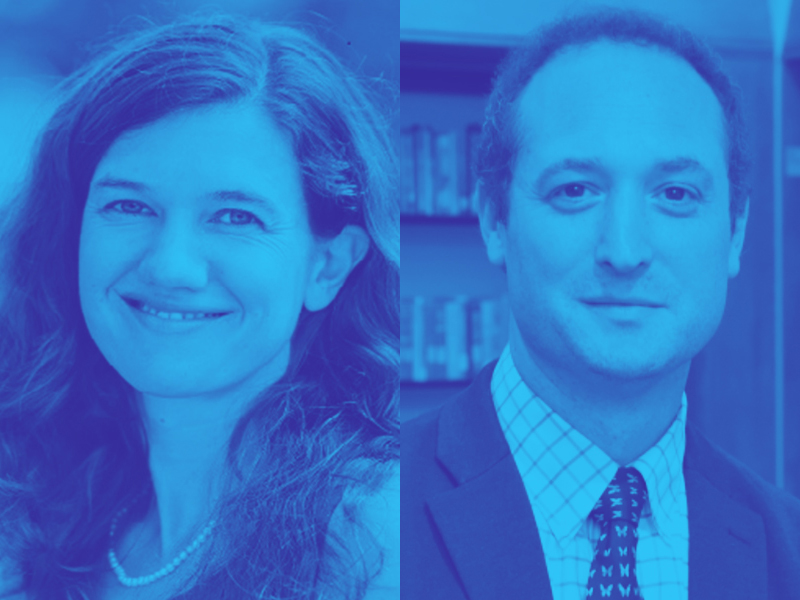 Our December Instructor Spotlights are Andrea Baer and Dan Kipnis. Andrea and Dan are teaching Online Source Evaluation through “Lateral Reading”: A Workshop for Educators on Dec. 19, 2 - 3 p.m. EST. This interactive workshop will focus on the credibility of online sources. Traditional checklist approaches to evaluating websites (e.g., the CRAAP test) are ineffective, despite their continued prevalence. A more effective approach to quickly assessing the credibility of an online source is lateral reading. “Lateral reading” essentially involves quickly moving off of a webpage and learning more about a source from other online information. In this hands-on virtual workshop, librarians Andrea Baer and Dan Kipnis will introduce “lateral reading” strategies for online source evaluation. Participants will then practice lateral reading and reflect on how they can help students develop these skills.
Our December Instructor Spotlights are Andrea Baer and Dan Kipnis. Andrea and Dan are teaching Online Source Evaluation through “Lateral Reading”: A Workshop for Educators on Dec. 19, 2 - 3 p.m. EST. This interactive workshop will focus on the credibility of online sources. Traditional checklist approaches to evaluating websites (e.g., the CRAAP test) are ineffective, despite their continued prevalence. A more effective approach to quickly assessing the credibility of an online source is lateral reading. “Lateral reading” essentially involves quickly moving off of a webpage and learning more about a source from other online information. In this hands-on virtual workshop, librarians Andrea Baer and Dan Kipnis will introduce “lateral reading” strategies for online source evaluation. Participants will then practice lateral reading and reflect on how they can help students develop these skills.
Andrea Baer is a Public Services Librarian at Rowan University Libraries. Prior to becoming a librarian, Andrea taught literature, languages, and writing in various educational settings, including higher education. Her research and writing focuses on information literacy and reflective teaching practice.
Dan Kipnis is the Life Sciences Librarian at Rowan University Libraries. He has published and presented on a variety of topics including digital archives, scholarly communication and and information literacy.
We recently chatted with Rachel as part of our Instructor Spotlight Series to learn more about her upcoming classes.
Can you explain lateral reading and how the concept came to your attention?
AB/DK: Lateral reading is the practice of quickly assessing a webpage’s credibility by moving off it and finding other coverage on what is being said about it. With an increased spread of misinformation (about elections, Covid, etc.), lateral reading seemed like a powerful skill to help students navigate and critically evaluate online sources. Research and our teaching experiences have strongly supported that initial impression.
Can you let participants know what to expect during the workshop?
AB/DK: In an interactive workshop, attendees will practice using lateral reading techniques to evaluate different online sources. In addition, participants will learn about challenges in teaching lateral reading and share their experiences.
Is there anything workshop attendees should look into ahead of time?
AB/DK: Nothing is required ahead of time in order to attend. We will provide a list of resources to consult after attending our workshop for those interested in learning more.
For fun, is there anything you have been reading, watching or listening to lately that you would like to share?
DK: Mystery AI Hype Theater 3000, Emily M. Bender and Alex Hanna. From the summary: "Artificial Intelligence has too much hype. In this podcast, linguist Emily M. Bender and sociologist Alex Hanna break down the AI hype, separate fact from fiction, and science from bloviation. They're joined by special guests and talk about everything, from machine consciousness to science fiction, to political economy to art made by machines."
AB: For fun, I am taking a break from thinking about the thorny issues surrounding misinformation. I recently enjoyed escaping into the delightful novel Tomorrow and Tomorrow, and Tomorrow by Gabrielle Zevin.
